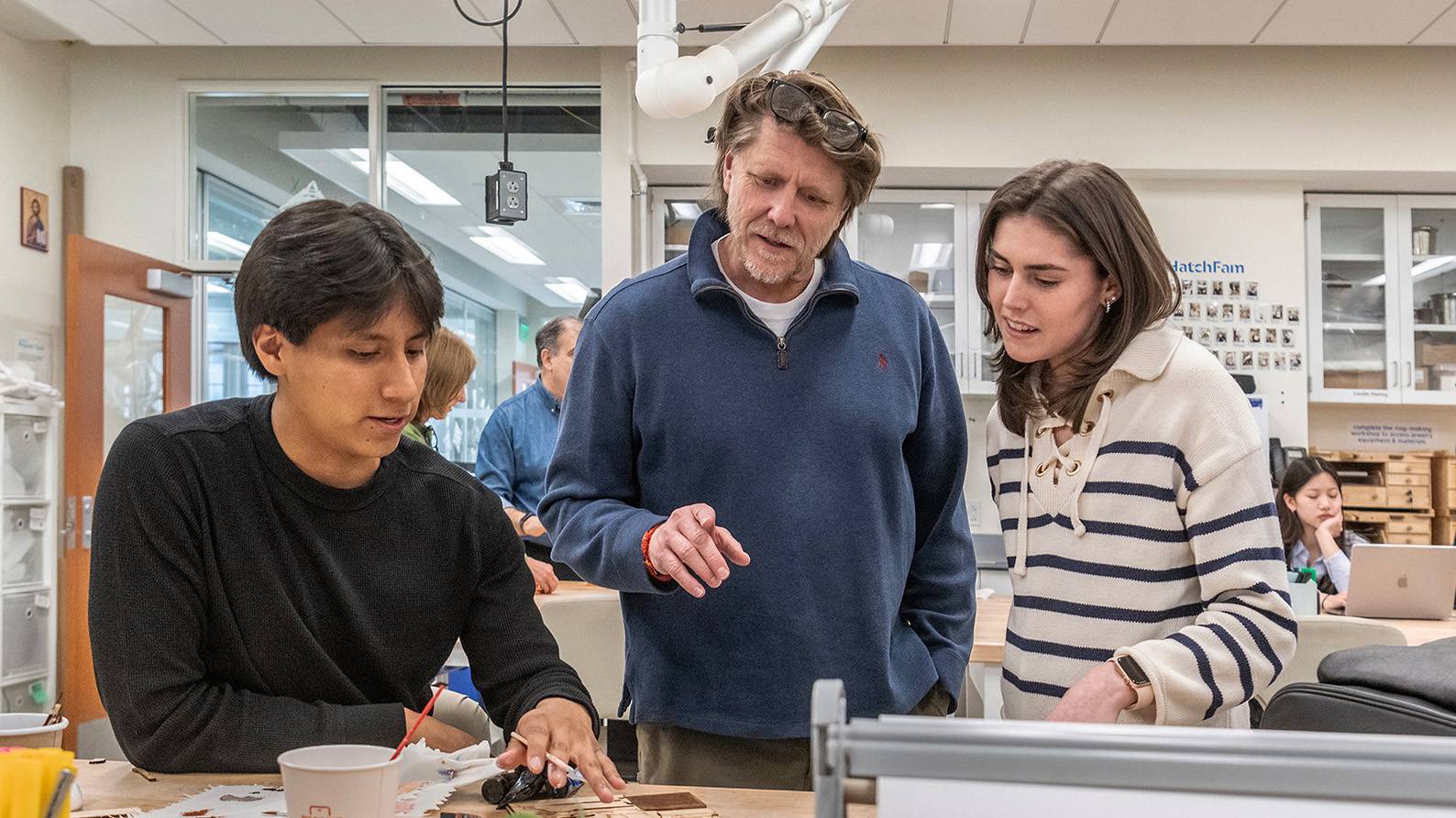One of Ignatius’s favorite ways of praying was to step into a Gospel story imaginatively. Although Ignatius was not the first to pray in this way, he gives imaginative prayer an important place in the Spiritual Exercises.
Starting in the second week, and from then on, those engaged in the Exercise journey enter the different Gospel scenes as though they are part of it. They learn how to live in the story, to be with the different characters involved, and to interact with Jesus as they are drawn to do so. Afterward, they reflect on their prayer experience and make notes on how it was for them.
On my most recent eight-day retreat, I was directed by a Jesuit familiar with this way of prayer. At nine o’clock each morning, I would meet him in his little office to share how my time in the past day of prayer had gone. He would then suggest a Scripture passage with which I could pray during the coming day.
One morning I came into the session, my head full of insights about the Gospel passage in John 21 he had given me the previous day. Besides praying with this encounter between Jesus and Peter, I had found a Bible commentary in the library and made some notes in my journal of some fresh discoveries about this passage. I wanted to share these insights with my veteran retreat guide.
As we took our seats, he asked me how my prayer had gone the day before. I told him about going to the library and how I had come across these helpful insights into the passages that he had given me. I started reading my notes to him.
Instead of sharing my excitement about my new learnings, he looked decidedly unimpressed. Halfway through what I was sharing, he interrupted me. With a twinkle in his eyes, he leaned over and said, “Trevor, insight is the consolation prize. The first prize is encounter with Jesus.”
Again, I realized how easily I turn my times of prayer into a head trip, where I collect more insights about Jesus rather than personally interacting with him.
With a smile, my retreat guide suggested that I return to the Gospel encounter between Jesus and Peter, dwell within it imaginatively, and let Jesus encounter me in whatever way he chooses.
For the rest of that day, I lived in this Gospel story. The scene came alive for me as I looked and listened with my inner eyes and ears. I found myself drawn into conversation with Jesus about where I found myself in my life, and I sensed his presence with me, inviting me to stay close to him and follow him into the unknown future.
The following morning, I shared with my companion how I had interacted with Jesus in my time of imaginative prayer. Our conversation had a completely different quality of aliveness and energy compared to the day before, when I had read aloud my carefully collected list of intellectual insights.
In imaginative prayer, we place our imagination at the service of our faith. Through this God-given faculty, we can interact with Christ and he can connect with us. Of course, we know that the image is not the reality. Exercising our imagination in this way simply deepens our participation in the reality that it seeks to describe. Nor do we assume that everything that happens in our imagination comes from the Lord. Much can be put down to our own projections and wishes. But I am learning to pay careful attention to those surprises that come to me in my times of imaginative prayer, especially those that reveal Jesus more intimately to me and cause me to love him more intensely and follow him more closely.
SEEKING EXERCISE
Take a few moments to experiment with imaginative prayer. Choose your favorite Gospel story. Read through it a few times to reacquaint yourself with the details.
Put the Bible down and ask God for the grace to come to know, love, and follow Christ more deeply. Step into the scene as a participant rather than as a spectator. See the persons involved, hear the words spoken, watch the actions performed. Pay attention to where you find yourself in the story. What do you see? What do you hear? How do you feel? What goes through your mind? Above all, interact with Christ as he meets you in this story, share whatever is on your heart with him, and listen to what he may be saying to you. Afterward make a few notes of how it went for you.
Taken from Seeking God: Finding Another Kind of Life with St. Ignatius and Dallas Willard by
Trevor Hudson © 2021. Used by permission of NavPress. All rights reserved. Represented by
Tyndale House Publishers, Inc.
Want to read more? Here is the start of Trevor’s new book, Streams In the Wasteland: Finding Another Kind of Life with St. Ignatius and Dallas Willard.

Trevor Hudson is the first recipient of the Richard Foster Award for Spiritual Formation at George Fox University. He is an ordained minister in the Methodist Church of Southern Africa. After spending forty years doing pastoral ministry in a local congregation, he now gives his time to lecturing, teaching, and writing in the areas of spiritual formation and spiritual direction. Throughout his life as a pastor and teacher, he has sought to prioritize the discipleship ministry of local congregations, build bridges across different “streams” within the Christian community, and relate spiritual formation to daily life within the context of our suffering world.
He is married to Debbie and is the father of two children, Joni, who is married to James, and Mark, who is married to Marike.












